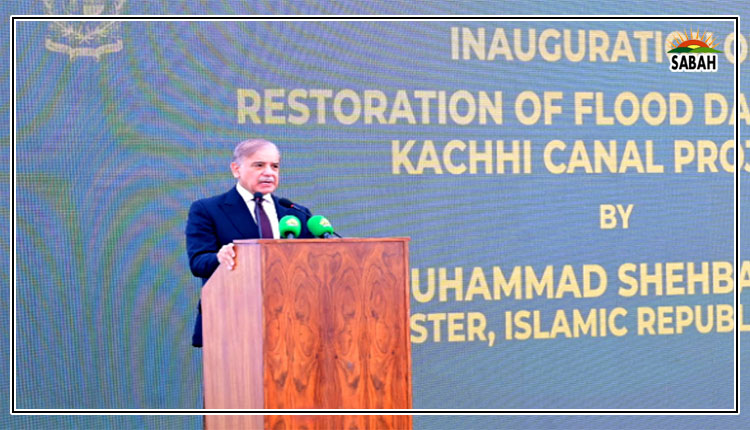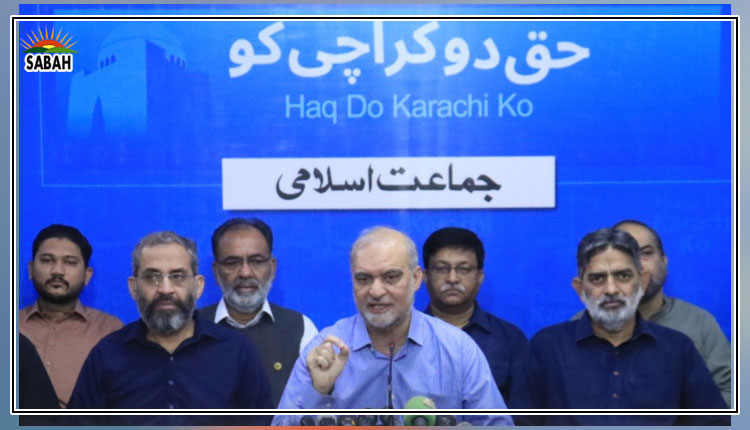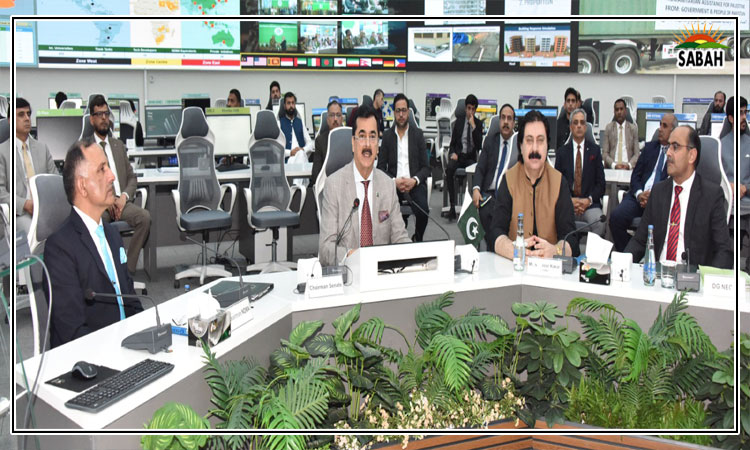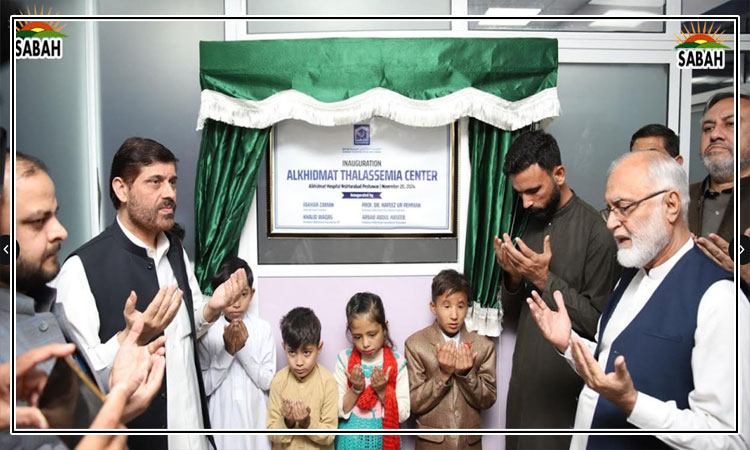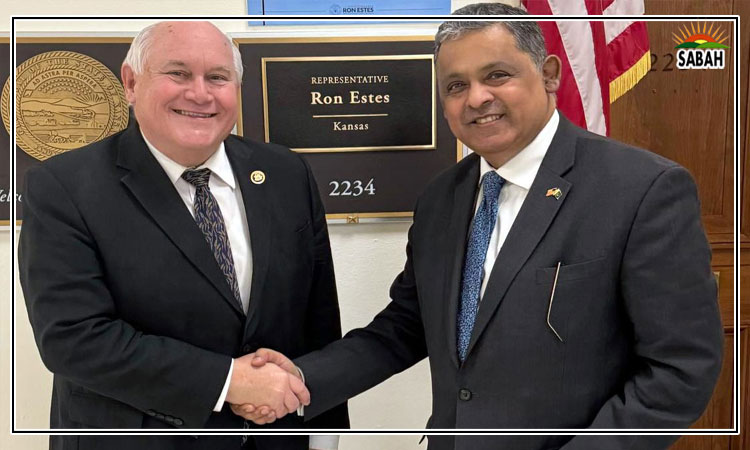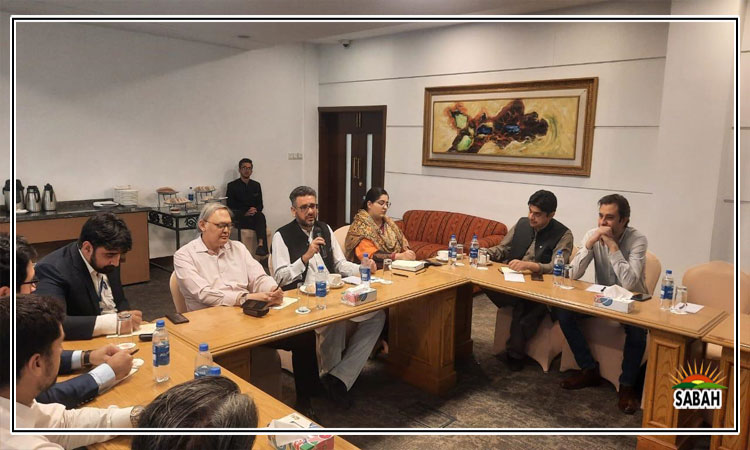KP’s formal women-led businesses face 60% decline over past four years due to regulatory hurdles
PESHAWAR, Sep 19 (SABAH): Dr. Muzammil Aslam, Advisor to the Chief Minister on Finance, Khyber Pakhtunkhwa has underscored the critical need for enhancing the capacity of the provincial bureau of statistics and leveraging data and digitalization to improve service delivery for citizens and businesses.
The CM’s Advisor emphasized the urgent need for evidence-based solutions to drive policy-making and implementation in Khyber Pakhtunkhwa. Highlighting the province’s goals of increasing tax and non-tax revenues, Dr. Aslam reiterated the commitment of the economic team to bolster provincial resources, particularly towards education and health sectors.
He made these remarks during the inaugural meeting of the Sustainable Development Policy Institute (SDPI) led National Network of Economic Thinktanks (NNETT) Advisory Committee for the Khyber Pakhtunkhwa Chapter. Dr. Aslam commended SDPI’s NNETT for their efforts in promoting evidence-backed policy making. He stressed the importance of this inclusive network as a government watchdog and an accountability mechanism at the local level.
Addressing the power sector challenges faced by the private sector, Dr. Aslam highlighted the government’s focus on public-private partnership-based solutions to support the sector. He underscored the critical need for enhancing the capacity of the provincial bureau of statistics and leveraging data and digitalization to improve service delivery for citizens and businesses. The need to position Khyber Pakhtunkhwa as an attractive investment destination through inclusive economic policies was also a key focus of his address.
Former Provincial Minister of Revenue, Industries, Commerce, and Technical Education, Adnan Jalil, echoed Dr. Aslam’s sentiments, advocating for the digitalization of government departments to standardize operations. Rashid Aman, Provincial Chief of the Small and Medium Enterprise Development Authority (SMEDA), called for future policy research to align with the International Monetary Fund (IMF) package, supplemented by comprehensive impact assessments at both federal and provincial levels. He emphasized the need for evaluating the impact of the 18th amendment and the development of district-level profiles and value chains linked to global networks.
In his remarks, Mr. Rashid stressed the significance of academia-industry linkages, noting successful collaborations such as those between the University of Swabi and the Swabi Chamber of Commerce and Industry. He highlighted the need for industry mentorship in incubation centers to enhance outcomes.
Dr. Akif Khan, Managing Director of the Khyber Pakhtunkhwa Information Technology Board (KPITB), detailed KPITB’s focus areas, including digital governance, IT industry ecosystem development, exports, and digital literacy. He underscored ongoing initiatives such as training in gaming and artificial intelligence, a forthcoming digital payment and fintech strategy, and the launch of the Khyber Pakhtunkhwa Open Data portal.
Asim Ishaq, Project Director of the National Incubation Centre, stressed the high potential of the information technology sector, advocating for regulatory reforms to support export-oriented businesses, improved digital infrastructure, and enhanced digital literacy. He emphasized the importance of integrating digital solutions into other economic sectors, such as automating processes in the mining industry to reduce waste.
The Secretary General of the Women Chamber of Commerce and Industry-Peshawar Division highlighted the challenges faced by women entrepreneurs, noting a 60% decline in formal women-led businesses over the past four years due to regulatory hurdles. She called for government support to address the lack of familial and community backing for women entrepreneurs and underscored the challenges posed by rising raw material costs and the need for streamlined freelancer registration.
The meeting included a presentation by Engineer Ahad Nazir, Secretary of NNETT and Associate Research Fellow at SDPI, who advocated for a localized and contextualized approach to research on provincial policy issues. The Advisory Committee also included representatives from the University of Swabi, University of Peshawar, Khyber Pakhtunkhwa Board of Investment and Trade, Khyber Pakhtunkhwa Chamber of Commerce and Industry, Khyber Pakhtunkhwa Finance Department, Centre for Governance and Public Accountability, and the Khyber Pakhtunkhwa Economic Zones Development and Management Company.
This high-level meeting underscored the commitment of the Khyber Pakhtunkhwa government and its partners to foster inclusive economic growth through evidence-based policies, capacity building, and public-private partnerships. Moving forward, the Advisory Committee aims to strengthen these initiatives and position Khyber Pakhtunkhwa as a leader in policy innovation and economic development.


